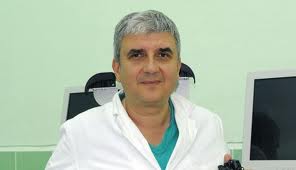Serbian scientist and apparent vitamin opponent, Goran Bjelakovic, is back with a predictable update to a 2008 attack on antioxidants. Usefully, though, Dr Bjelakovic has now revealed his agenda – and antioxidant-lovers can safely ignore his largely meaningless conclusions.
Mr Laptop Rehash and the Inevitable Conclusion
Dr Bjelakovic specialises in re-examining other people’s data using statistical modelling, otherwise known as ‘meta-analysis’; he never brings new research to the table. This new paper examines 78 randomised, controlled trials (RCTs) of the effects of antioxidant supplementation on mortality, which has been updated from the 2008 paper to include data from the Selenium and Vitamin E Cancer Prevention Trial (SELECT) trial. Bjelakovic’s conclusion reads, with wearying familiarity, “We found no evidence to support antioxidant supplements for primary or secondary prevention. Beta-carotene and vitamin E seem to increase mortality, and so may higher doses of vitamin A.”
Usual problems
The usual problems with Bjelakovic’s methodology apply to this study, particularly:
- Limited range of antioxidants included, none being plant-derived
- Some substances under review can act as pro-oxidants at the high doses used in some of the trials analyzed
- Studies of vitamin E and beta-carotene examined artificial, isolated forms as opposed to their naturally occurring complexes
A political publication
Perhaps more interesting than the paper itself are the authors’ responses to criticism of their earlier work, in which they reveal a clear anti-supplement agenda. In the paper’s conclusion, they declare that, “Antioxidant supplements need to be considered as medicinal products and should undergo sufficient evaluation before marketing,” a position they describe in the paper’s online ‘Feedback’ section as, “A political statement. We...hope that some politicians and regulatory authorities will act as brave individuals and not servants of the [vitamin] industry”.
Call us crazy, but that sounds like bias to us. And it leads us to believe that Dr Bjelakovic is probably fully in favour of media misinterpretation saying that all antioxidants – even plant-based ones that are conspicuously absent from the paper – are useless or dangerous.
Savvy readers will realise that it’s two sides of the same anti-natural healthcare agenda.
Call to action
- Be aware of the biases present in some academic research of dietary supplements, and how this is often reflected in the media
- Keep eating ‘a rainbow every day’, in terms of different coloured vegetables and fruits, which naturally contain a broad range of natural antioxidants
- Take antioxidant supplements in addition, especially if you are physically or emotionally stressed or exercise a lot. But remember, these go far beyond the realms of just vitamins A, C, E and selenium, the sole focus of Bjelakovic and colleagues. Some of the best-studied natural antioxidants include curcumin (from turmeric), garlic, resveratrol, polyphenols (e.g. in grapes and blueberries) and phenolics (e.g. in strawberries and raspberries)








Comments
your voice counts
28 April 2012 at 12:59 am
For readers without Wiley-account:
the abstract of the updated 'meta-analysis' can be read here
http://onlinelibrary.wiley.com/doi/10.1002/14651858.CD007176.pub2/abstract
Your voice counts
We welcome your comments and are very interested in your point of view, but we ask that you keep them relevant to the article, that they be civil and without commercial links. All comments are moderated prior to being published. We reserve the right to edit or not publish comments that we consider abusive or offensive.
There is extra content here from a third party provider. You will be unable to see this content unless you agree to allow Content Cookies. Cookie Preferences